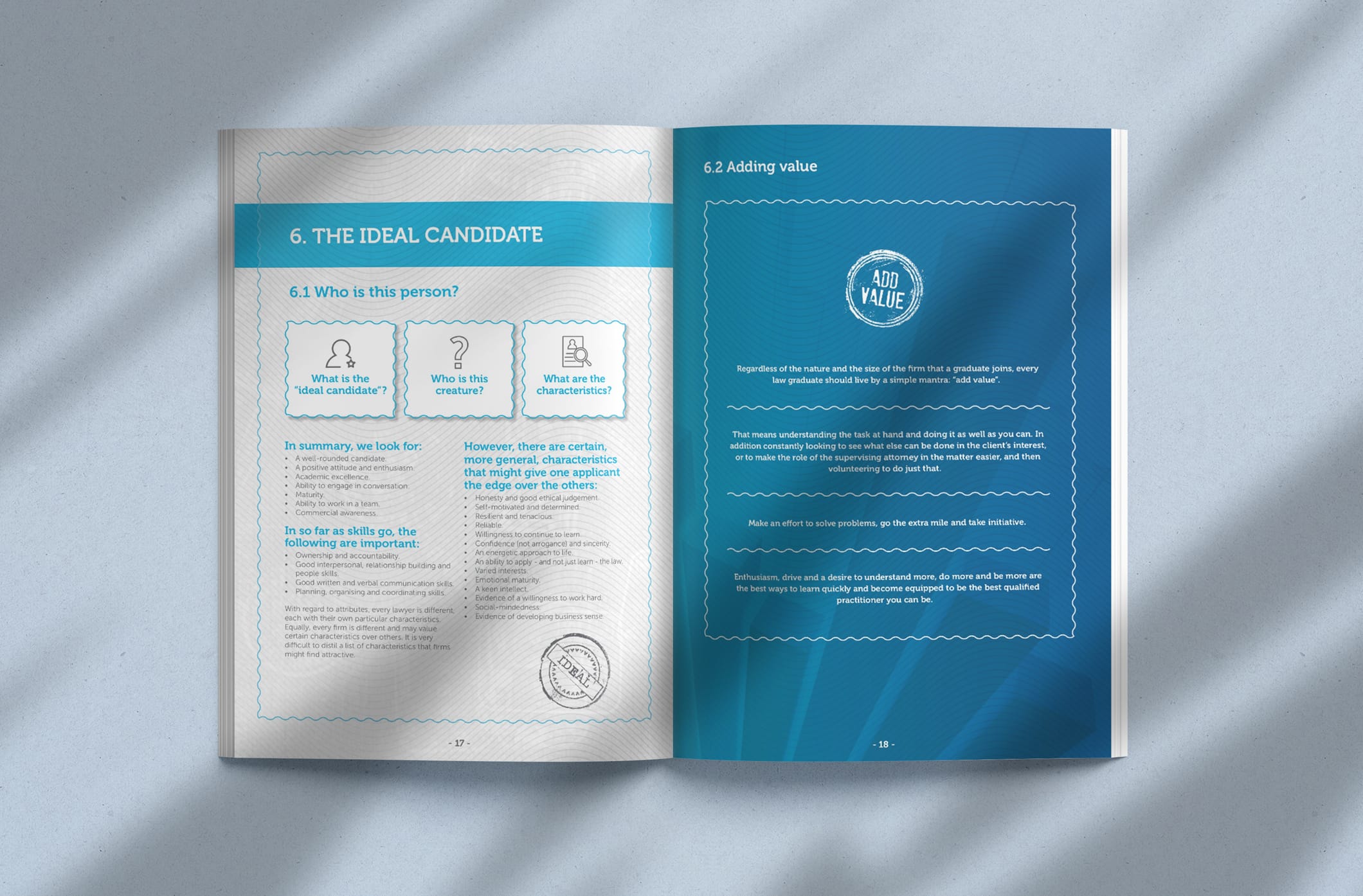Tips on preparing for your interview
Tips on preparing for your interview

At a glance
This article covers tips on preparing for your interview, what to expect, how to prepare, as well as general do's and don'ts.
General tips
- The interview is certainly a vital stage in the recruitment process for any law firm.
- The interview enables the firm to form an opinion of you as a person and assess whether you are suited to the firm’s culture, environment and requirements.
- Although the interview is primarily aimed at assessing you and your character, it is also an opportunity for you to assess the firm. It is therefore important for you to ask the questions you have about the firm at this time. An even better way to get to know a firm is to attend a vacation work programme at the firm if possible.
- Invariably, firms look for balanced individuals who display self-confidence (not arrogance) and exhibit the makings of a good lawyer. In the high-paced legal profession, firms need to be sure that candidates can manage stress, which is most often indicated by a healthy social life outside of the law firm.
- It is extremely important to be yourself in an interview. You do no favours to yourself if you answer questions in the way you think the firm wants them to be answered.
- You need to be sure that you fit the firm and that the firm fits you – not some made-up version of you – if you are to make a success of Practical Vocational Training. Pre-planned answers are not ideal since it is easy for experienced interviewers to spot a ‘learned’ response – and this will reflect poorly on you.
In light of the general comments above, highlighted below are some points to keep in mind in the stage before the interview; some types of questions you might expect in an interview with a law firm; and certain characteristics that you should possess or begin developing if you wish to make a success of Practical Vocational Training.
The road to the interview: the application process
A firm forms an opinion about a candidate long before the interview. The firm decides whether or not to interview a candidate based on the application submitted by that candidate.
You should therefore ensure that you:
- apply on time (showing organisational and time management skills);
- ensure all information required in the application is present (showing attention to detail); and
- write neatly if you fill in an application form by hand, and remember to check your spelling and grammar (language is a lawyer’s tool and you should show the firm right at the “get-go” that you are proficient in the use of your language).
Some firms require applications to be submitted online. This does not mean that you need not show the same attention to detail as you would for a written application.
It is good practice to include a cover letter with your application and CV unless the firm does not require one.
Your cover letter should show that you can write in a professional manner and should indicate to the firm exactly why your application should be considered.
You have an interview – now what?
Hopefully your application shows the firm that it should take a little bit more time to get to know you and invite you for an interview.
If so here are a couple of tips that might help you prepare for the interview.
- Make sure that you have noted the time, date and venue for the interview correctly.
- Do a bit of research on the firm. This does not mean learn their website off-by-heart. Just be able to show the interviewer that you are the type of person who prepares ahead of time. This will probably also leave you with some questions about the firm that you can have answered at the interview.
- Do not pre-plan your answers. Firstly, you may not be asked the question you think you will be asked; and secondly, as previously mentioned “pre-planned” answers are easy to spot.
- Although you should not pre-plan answers to possible questions, take some time before the interview to reflect on what you want to get out of the experience of being a Candidate Attorney and why you think that if the firm selects you it would be mutually beneficial.
- Do not panic – an interview is about you and to a greater or lesser extent (depending on the firm) about the law. These are two topics that you are already familiar with!
In the interview what can I expect?
It is extremely difficult and also ill-advised to try to predict what questions you will be asked in an interview. Different firms have different approaches. Some focus on asking legal questions to test the candidate’s ability to think on their feet, other focus more on the candidate as a person.
However, there are certain categories of questions that do often get asked such as:
- questions about yourself, your background and studies;
- questions aimed at establishing your motivation for studying law;
- questions aimed at establishing a basic practical knowledge of the law;
- questions to test your awareness of current affairs;
- questions to establish whether you will be able to maintain an appropriate work-life balance (i.e. about hobbies, community involvement etc);
- questions to establish whether you are suitable for the legal professional (practical ethics-based questions, questions that establish your leadership ability (or potential) and questions that establish social-mindedness; and
- questions about you as a person (your background, previous work experience, and your strengths and weaknesses).
The information and material published on this website is provided for general purposes only and does not constitute legal advice. We make every effort to ensure that the content is updated regularly and to offer the most current and accurate information. Please consult one of our lawyers on any specific legal problem or matter. We accept no responsibility for any loss or damage, whether direct or consequential, which may arise from reliance on the information contained in these pages. Please refer to our full terms and conditions. Copyright © 2023 Cliffe Dekker Hofmeyr. All rights reserved. For permission to reproduce an article or publication, please contact us cliffedekkerhofmeyr@cdhlegal.com.






